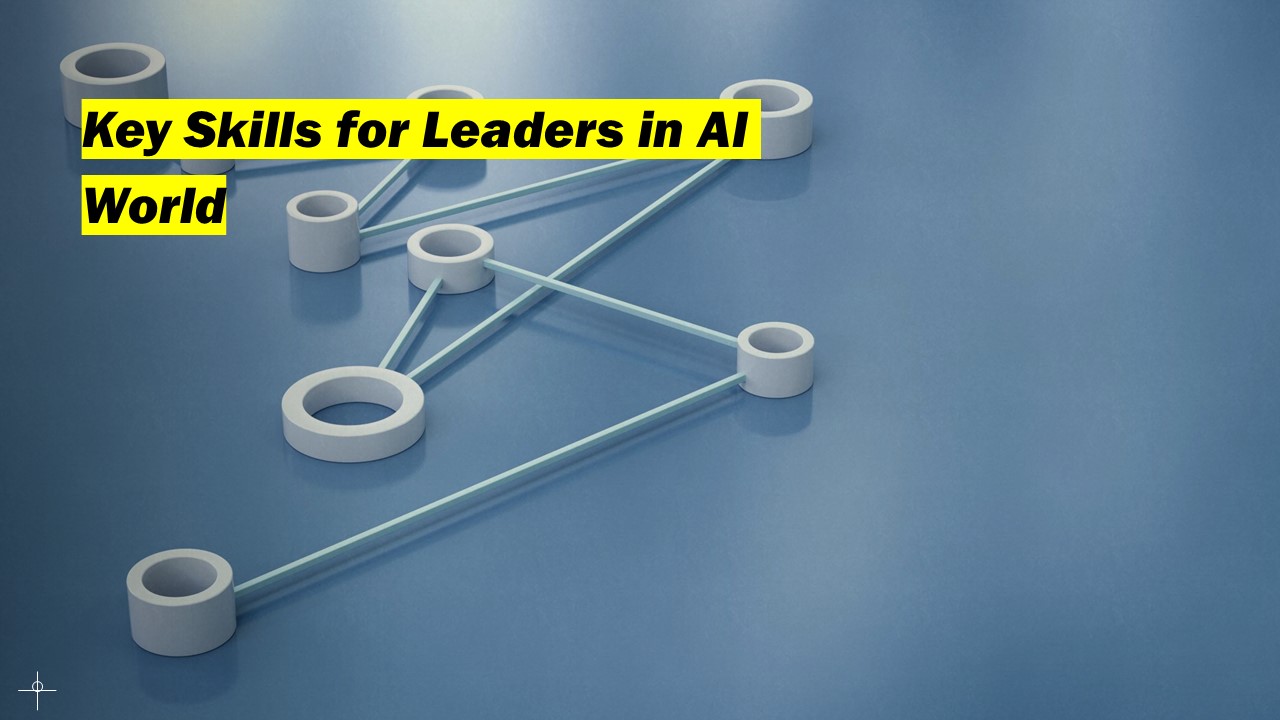As we approach 2025, the rise of artificial intelligence (AI) continues to redefine industries, transform job roles, and reshape leadership. Leaders are no longer just managing human teams—they’re increasingly navigating the intersection of humans and intelligent machines. To stay relevant and effective in this AI-driven world, leaders must adapt by acquiring a new set of skills that balance technological understanding with human-centric leadership.
Here are the key skills that every leader should focus on mastering as we enter the AI era:
1. AI Literacy and Technological Fluency
In the AI era, leaders don’t need to be data scientists, but they do need a strong grasp of how AI works, its capabilities, and its limitations. This includes:
- Understanding AI concepts such as machine learning, natural language processing, and predictive analytics.
- Identifying use cases where AI can improve processes, productivity, and innovation in their organization.
- Ethical considerations to ensure responsible AI deployment and prevent bias or misuse.
Leaders must be fluent enough to engage in conversations about AI with technical teams and external stakeholders while fostering a culture of technological curiosity within their organizations.
2. Strategic Vision and Adaptability
AI is evolving rapidly, and its adoption often leads to unpredictable changes in industries and consumer behavior. Leaders must:
- Develop future-oriented strategies that align AI capabilities with their organization’s goals.
- Be flexible enough to pivot plans and adapt to disruptions, whether it’s adopting new technologies or shifting business models.
- Continuously scan the horizon for emerging trends to stay ahead of competitors.
3. Data-Driven Decision-Making
The AI era is fueled by data, making it a critical resource for decision-making. Leaders must:
- Learn to interpret complex data insights provided by AI tools to make informed decisions.
- Understand the basics of data governance and ensure that their organization collects, processes, and utilizes data ethically and securely.
- Foster a data-driven culture within teams, empowering employees to use analytics effectively in their roles.
4. Emotional Intelligence (EQ)
As automation takes over routine tasks, leaders need to focus on uniquely human skills, particularly emotional intelligence, which includes:
- Building trust and rapport with teams, especially in hybrid human-machine environments.
- Managing change effectively to reduce employee anxiety about AI replacing jobs.
- Enhancing collaboration, empathy, and communication to ensure employees feel valued and supported.
AI may handle logic, but leaders must master the art of human connection to inspire their teams.
5. Fostering Innovation and Creativity
While AI excels at automation and data processing, it cannot replicate human creativity and innovation. Leaders should:
- Encourage a culture of experimentation and risk-taking to explore AI-powered opportunities.
- Focus on creative problem-solving and push teams to think beyond traditional boundaries.
- Collaborate with diverse teams to bring fresh perspectives to AI implementations.
6. Reskilling and Upskilling Talent
AI is changing the nature of work, and employees will need to acquire new skills to remain relevant. Leaders must:
- Identify skills gaps and develop reskilling programs to prepare their workforce for AI collaboration.
- Invest in lifelong learning initiatives to keep employees up-to-date with evolving technologies.
- Act as role models by committing to their own continuous learning journey.
7. Ethical Leadership
AI raises complex ethical questions, from data privacy to potential job displacement. Leaders must:
- Prioritize transparent AI policies that align with their organization’s values.
- Advocate for inclusive AI adoption, ensuring that technology benefits employees, customers, and society.
- Take responsibility for the social implications of AI, including reducing inequalities and addressing biases.
8. Change Management and Communication
Introducing AI often requires significant organizational changes. Leaders must:
- Be skilled at navigating resistance to change by communicating the benefits of AI clearly and effectively.
- Engage employees in the transformation process to build a sense of ownership and reduce fear.
- Use storytelling to inspire teams about how AI can create a better future for both the business and its people.
9. Collaboration with AI
Rather than viewing AI as a competitor, leaders must embrace it as a collaborator. This means:
- Understanding how to leverage AI tools to augment human capabilities, such as automating repetitive tasks or enhancing decision-making.
- Encouraging teams to adopt a human-AI partnership mindset, where technology enhances, not replaces, their efforts.
10. Global and Cultural Awareness
AI adoption varies across industries, regions, and cultures. Leaders must:
- Stay informed about global AI trends and how they may impact their industry.
- Develop cultural sensitivity to ensure their AI solutions meet the needs of diverse customers and employees.
- Collaborate across borders to leverage AI’s potential in a globalized economy.
Final Thoughts
The AI era isn’t just about technology; it’s about how leaders integrate technology with human values and vision. The leaders of 2025 and beyond must become champions of both innovation and empathy, balancing AI’s capabilities with the power of human creativity and connection.
By mastering these key skills, leaders will not only stay relevant but also empower their organizations to thrive in the transformative years ahead. The future of leadership is here—and it’s AI-enhanced.

